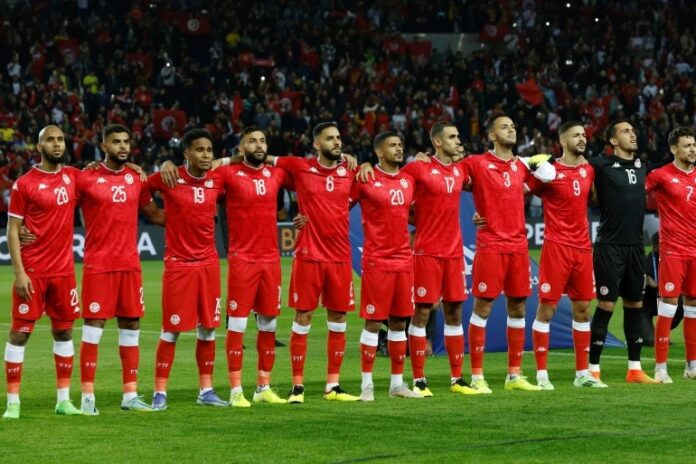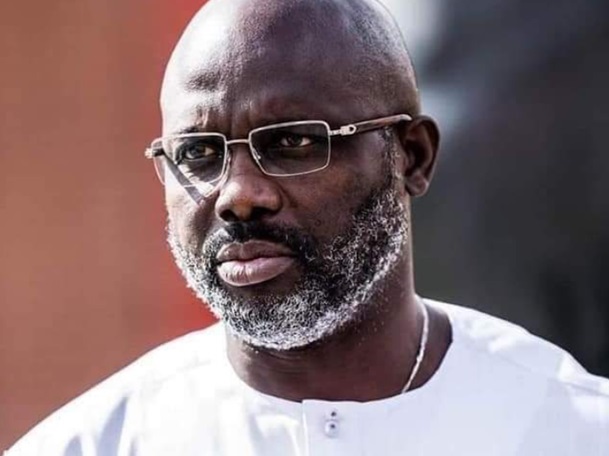By Candice Musungayi
The latest scandal involving ArcelorMittal – the largest foreign investor in Liberia – has thrown harsh light on the failings of the George Weah administration. While Liberia has been rocked by the pandemic, the scandal reveals how Liberians have been deprived of vital medical facilities and millions of dollars under Weah’s watch, writes Candice Musangayi.
The episode raises serious questions about the ability of the former footballer to attract and retain business and foreign investment that truly benefits ordinary people in Liberia. As the West African nation, which is rich in natural resources, seeks to recover from the impact of the pandemic, Weah’s lack of experience is a burden on a country that cannot afford to be left behind.
The ArcelorMittal scandal
ArcelorMittal Liberia was taken to court in early September for defaulting on several provisions of its 2007 concession agreement. The lawsuit – the first time ArcelorMittal Liberia has been taken to court since it started operations in the country in 2005 – accuses the steel giant of non-payment of millions of dollars in corporate social responsibility, arbitrary reduction of government shares, depriving Liberians of lawful employment and benefits, and the failure to construct hospitals. This shock moves coincides with a dire cash shortage, with hospitals and added government revenue are needed more than ever amid the COVID-19 pandemic.
Yet this unprecedented legal action, launched by an acolyte of President Weah, comes after the President on 10 September commended ArcelorMittal management for their intentions to continue to invest in the future of Liberia after the signing ceremony of a Mineral Development Agreement. The agreement is supposed to see ArcelorMittal invest an additional USD 800 million into its iron ore project.
Here, Liberia finds itself in a peculiar situation. On the one hand, we have allegations from a close presidential associate of large-scale failings of a foreign investor which has deprived Liberia of its prosperity. On the other, we have a president not only congratulating the investor, but rewarding it with hundreds of millions of dollars’ worth of agreements with no apparent efforts to discipline it for these supposed failings.
The failure of Weah
The uncertain motivations behind the lawsuit reveals that Weah has allowed poor governance to become endemic in Liberia.
Despite this, many media analysts have praised Weah for his apparent ability to secure deals with ArcelorMittal and other investors. Admittedly, many of his deals sound impressive when stripped of the context provided by the lawsuit. Indeed, ArcelorMittal claims to have invested over USD 2 billion in the country over the past 15 years. But Liberians cannot expect this investment to materially improve their lives when Weah seemingly allows ArcelorMittal to default on their agreements and restrict wealth from benefiting the local people.
However, the recent scandal is only a single episode in the series of failings under the presidency of former soccer player Weah. Liberians had had enough of wasted opportunities, even before the pandemic. In June 2019, more than 5,000 people protested in Monrovia against Weah’s failure to tackle economic mismanagement, corruption and widespread injustice. The unrest – known as the #BringBackOurMoney movement – was one of the biggest social movements in living memory. As a result of Weah’s failings, Liberia – a country full of talent and natural resources – ranks 175 out of 190 economies in the World Bank’s 2020 Doing Business Report.
Of course, some blame should be apportioned to the previous administration of Ellen Johnson Sirleaf and the officials who have failed to tackle corruption despite years in power, such as future presidential hopeful and former vice president Joseph Boakai. Boakai has long been entwined in the crooked domestic political scene, failing to make any headway against corruption while deputy head of government in previous administrations.
But today, the buck stops at Weah. Through a combination of inexperience, incompetence and perhaps too many headers during his soccer career, Weah has allowed foreign investors to grow rich off the abundance of the nation’s resources while abandoning Liberians during the global crisis of a generation.
What are the alternatives for change?
The revelation of the need for change is the only silver-lining of the ArcelorMittal scandal. As Liberia approaches its next presidential election – due in 2023 – the various opposition candidates represent different options for voters seeking an alternative to the populist Weah. Opposition parties are currently in coalition in order to present one candidate to the people in the election, thereby presenting the best chance of toppling the incumbent, and the race is on to secure the nomination.
The front-runner and perhaps most qualified candidate to turn Liberia’s faltering economy round is Alexander B. Cummings. Cummings is the most successful and experienced Liberian businessman of recent years. From humble beginnings in Montserrado County, Cummings rose to become head of Coca-Cola Africa, which grew to become present in every country in Africa under his watch through a combination of astute foreign investment, well-founded partnerships and mutually beneficial operations with local governments.
In a demonstration of his own social responsibility – in contrast to Weah – Cummings was awarded in 2011 the Knight Great Band – Humane Order of African Redemption, one of the highest honours in Liberia to be awarded for humanitarian work. His Cummings Africa Foundation provides entrepreneurship training and facilitated the construction of a STEM academic institution – the first of its kind in Liberia. During the pandemic, Cummings has supplied medicines and medical supplies to hospitals countrywide, as well as opening treatment centres.
According to supporters, his experience has equipped him with the skills and values to transform Liberia. They consider his commercial success a demonstration that he knows how to run large organizations and hold people account for their failings. His business leadership is grounded in his commitment to good governance, which was described by former UN Secretary-General Kofi Annan as “perhaps the single most important factor in eradicating poverty and promoting development”.
Cummings’ main challenger with be the opposition’s establishment candidate. As a former vice president, Joseph Boakai has been in politics for decades and is part of the elite that has led Liberia to its current position. There is a sense that the 76-year-old believes that he is ‘owed’ the presidency and that it is his turn to lead. Certainly, his fitness to run against Weah and then lead the country has been called into question in the Liberian media while ordinary people are yet to be acquainted with his policy platform to transform the country. Questions remain about his ability to institute the change that Liberia needs.
When Liberians head to the polls in 2023, Liberians are likely to remember Weah failed to tackle corporate greed and failed to make the country’s own assets work for the people of Liberia. Their vote will be more important than ever and will decide whether Liberia’s future truly will be different to its past. Published by Eureporter in 2021.







